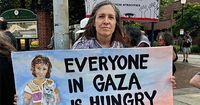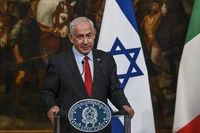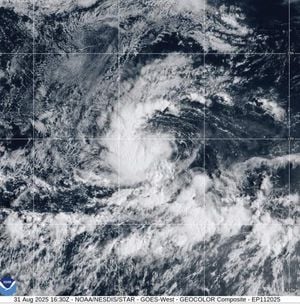It was a night that Tel Aviv will remember for years to come. On August 17, 2025, the city’s central Hostage Square heaved with the energy of tens of thousands—possibly half a million—protesters, all demanding an end to the war in Gaza and the safe return of hostages. Organizers from the Hostage and Missing Families Forum, who led the rally, claimed it was the largest demonstration since the conflict began in October 2023. Their message was clear: "Bring them home" and "End this fucking war now," slogans that echoed across the city and throughout the country, according to Brussels-based reporting.
The protest in Tel Aviv was not an isolated event. It marked the climax of a nationwide mobilization that saw citizens pouring into the streets of cities across Israel, culminating in what many described as a million-strong movement. Roads were blocked, tires set alight, and the atmosphere was charged with both hope and anger. Police responded with water cannons and reported more than 30 arrests in the capital alone, while the total number of arrests nationwide hovered around 40, as confirmed by both Israeli police and international correspondents.
But the demonstrations were about more than just numbers. Protesters’ demands centered on two urgent goals: a comprehensive agreement to return the hostages and a decisive end to the ongoing military campaign in Gaza. As reported by multiple outlets, the Hostage and Missing Families Forum emphasized that their movement was not just about Israeli lives, but also about stopping the bloodshed on both sides. The sense of urgency was palpable, with families of hostages pleading for action and ordinary citizens fearful for the future.
Meanwhile, in Gaza, the situation was growing ever more dire. Israeli officials announced preparations to move up to a million Palestinians from Gaza City as part of a planned offensive to seize control of the enclave’s largest urban center. Tents and shelter equipment were promised via the Kerem Shalom crossing, under UN and international supervision. Yet, for many Palestinians, these promises rang hollow. Gaza’s health authorities reported at least 40 deaths from Israeli attacks on August 16—including civilians in temporary shelters and those seeking aid. The repeated relocations, they warned, had left people without food, medicine, or shelter, and new displacement would only deepen their uncertainty.
On August 18, dozens of Palestinians in Gaza City gathered to protest against the Israeli army’s plan to take over their city and transfer the population southward. Until this point, the city’s 700,000 residents had avoided displacement, but now, Gaza City was also home to an additional half a million Palestinians already displaced from the north. As Israeli airstrikes escalated, fear and exhaustion permeated the community. One Palestinian demonstrator told reporters, "We are tired of moving again and again. There is nowhere left for us to go."
Back in Israel, political divisions were deepening. Prime Minister Benjamin Netanyahu lashed out at the protesters, accusing them of "strengthening Hamas’s position and prolonging the plight of the hostages." His remarks, widely reported in Israeli and international media, underscored the growing chasm between the government and a significant segment of the public. The controversy was further inflamed when recordings surfaced of a former military intelligence chief suggesting that mass Palestinian casualties were justified after the October 7, 2023 attacks—a statement that sparked outrage and renewed debate about the conduct of the war.
The reverberations of the crisis extended far beyond Israel and Gaza. Internationally, there was a marked shift in both political and economic attitudes toward the Israeli government. According to the Financial Times, Norway’s two trillion dollar sovereign wealth fund announced it had sold a fifth of its assets in Israel, citing growing "moral doubts." Other major investors, including some prominent Jewish organizations, were reportedly reassessing their financial ties as well.
Diplomatic pressure was mounting, too. French President Emmanuel Macron described Israel’s escalation as a "disaster," while German Chancellor Friedrich Merz declared that Israeli policy towards Gaza "is no longer justified." Norwegian Prime Minister Jonas Gahr Store lamented that Israel "has damaged its reputation in countries that have always had sympathy for it." The European Union, through its Commissioner for Crisis Management, Hadja Lahbib, called for immediate humanitarian aid access to Gaza and warned that "respect for International Humanitarian Law is under threat." In a statement marking World Humanitarian Aid Day, Lahbib highlighted that targeted attacks on civilians and aid workers, along with strikes on hospitals and schools, were surging in Gaza, Sudan, and Ukraine.
Elsewhere, the diplomatic fallout continued. Australia made headlines by cancelling the visa of Simcha Rothman, a member of Israel’s far-right Religious Zionism party and a key Netanyahu ally. The Albanese government said the decision was made to prevent the spread of hate and division, barring Rothman from applying for another visa for three years. The move was welcomed by critics but denounced by Rothman as discriminatory.
The international community’s response was not limited to statements and sanctions. There was a growing trend of governments recognizing the state of Palestine or at least limiting arms exports to Israel, a development that would have been unthinkable just a few years ago. Incidents involving Israeli tourists being ostracized in foreign countries—chased out of bars, stranded on cruise ships—were on the rise, signaling a broader shift in public sentiment worldwide.
Meanwhile, the crisis was also sparking political mobilization far from the Middle East. In the United States, progressive opposition movements were gaining momentum in response to the Gaza conflict and related issues. These included campaigns focused on affordability, community protection from ICE, and senators opposing arms shipments to Israel. According to The Nation, the Democratic Party now faces a stark choice: "Will it embrace a politics that is principled and popular, or will it continue to insist on losing elections with the out-of-touch elites and consultants that got us here?" The publication called for continued support of independent journalism to inform and empower progressives during this critical moment.
As the conflict grinds on, the sense of crisis deepens on all fronts. In Tel Aviv and Gaza, on the streets and in government offices, and across distant capitals, the war’s consequences are being felt in ways both immediate and profound. The demands for peace, justice, and accountability grow louder, even as the path forward remains uncertain.





